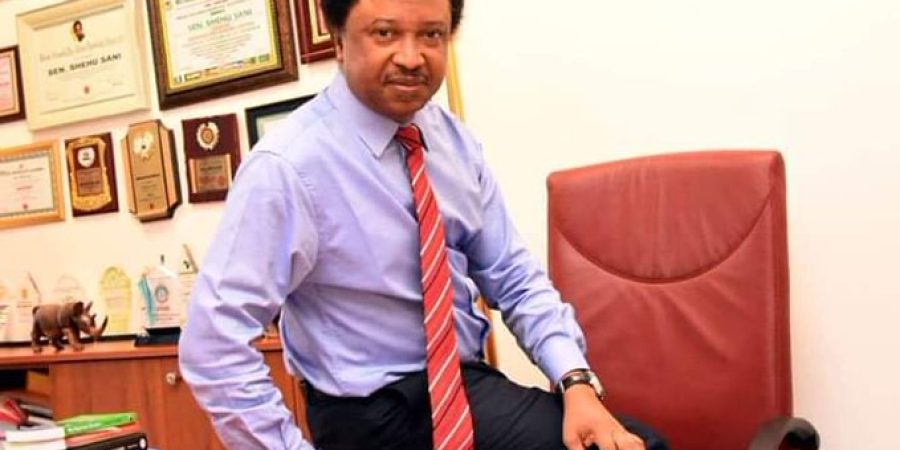Former Senator representing Kaduna Central Senatorial District, Shehu Sani, alongside some Civil Society Organisations (CSOs), have thrown their weights behind the federal government’s firm stance against a proposal by the United States to relocate Venezuelan prisoners to Nigeria. They described the move as a bold stand in defence of Nigeria’s sovereignty and justice system.
The development followed remarks by the Minister of Foreign Affairs, Yusuf Tuggar, who disclosed on Thursday that the U.S. has been pressuring Nigeria, as well as other African nations, to accept deported Venezuelan nationals currently held in U.S. correctional facilities.
Tuggar, speaking during a television interview, made it clear that Nigeria was unlikely to accommodate such a request.
However, the United States Mission has denied that the recent reduction in visa validity for Nigerian nonimmigrant travelers is tied to Nigeria’s position on BRICS or the Venezuelan deportees, but was based on security and other technical reviews.
President Donald Trump’s administration this week asked five African presidents visiting the White House to take in migrants from other countries when deported by the U.S, sources at the meeting revealed.
Tuggar said: “You have to also bear in mind that the U.S. is mounting considerable pressure on African countries to accept Venezuelans to be deported from the U.S., some straight out of prison.
“It will be difficult for a country like Nigeria to accept Venezuelan prisoners into Nigeria. We have enough problems of our own.”
Since returning to office in January, Trump has been pressing to speed up deportations, including by sending migrants to third countries when there are problems or delays over sending them to their home nations.
This week, he hosted the presidents of Liberia, Senegal, Guinea-Bissau, Mauritania and Gabon at the White House. According to a U.S. and a Liberian official, he presented the plan for African countries to take in migrants from other countries when they are deported by the U.S.
Reacting to the development, Sani cautioned the federal government against entertaining any arrangement that would see foreign prisoners settled on Nigerian soil.
Posting on his official X (formerly Twitter) account, Sani wrote: “If the US wants to send Nigerian prisoners in US Jails back to Nigeria, that is ok and should be accepted. We don’t want Venezuelan prisoners in our country, wand there should be no space for them now or in the future.”
Backing the government’s position, civil society groups described the move by the United States as inappropriate, insensitive, and inconsistent with international norms of justice and state sovereignty.
Executive Director of the Centre for Justice and Human Dignity (CJHD), Ifeoma Akande, lauded the government’s decision, describing it as “a necessary line of defense.”
“We commend the federal government for standing firm in its decision to reject the transfer of Venezuelan prisoners to Nigeria,” Akande said. “This move upholds national sovereignty and protects the integrity of our already overstretched criminal justice system. Accepting foreign convicts with no ties to Nigeria would have set a dangerous precedent and imposed unjust burdens on our correctional facilities.”
Similarly, the Programmes Lead at the Citizens’ Rights and Legal Aid Foundation (CRLAF), Musa Abdulkareem, expressed strong opposition to the proposal.
According to him, “The attempt to relocate Venezuelan prisoners to Nigeria is an affront to our human rights framework and prison reform agenda,” he stated.
“We support the government’s rejection of this proposal and urge authorities to remain vigilant against similar future arrangements. Nigeria must never become a dumping ground for international convicts under the guise.”
However, the US Mission in Abuja while clarifying the latest visa validity decision on Friday noted that the decision was rather based on a global security and technical review.
The mission, in a statement on Facebook, also reaffirmed its commitment to bilateral cooperation with Nigeria and expressed willingness to work with Nigerian authorities to meet the necessary criteria.
The statement read: “The U.S. Mission Nigeria wishes to address misconceptions about the recent reduction in visa validity for most nonimmigrant U.S. visas in Nigeria and other countries. This reduction is not the result of any nation’s stance on third-country deportees, introduction of e-visa policies, or affiliations with groups like BRICS.
“The reduction in validity is part of an ongoing global review of the use of U.S. visas by other countries using technical and security benchmarks to safeguard U.S. immigration systems.
“We value our longstanding partnership with Nigeria and remain committed to working closely with the Nigerian public and government officials to help them meet those criteria and benchmarks, thereby ensuring safe, lawful, and mutually beneficial travel between our nations.”
Chuks Okocha, Michael Olugbode and Sunday Ehigiator
Follow us on:



